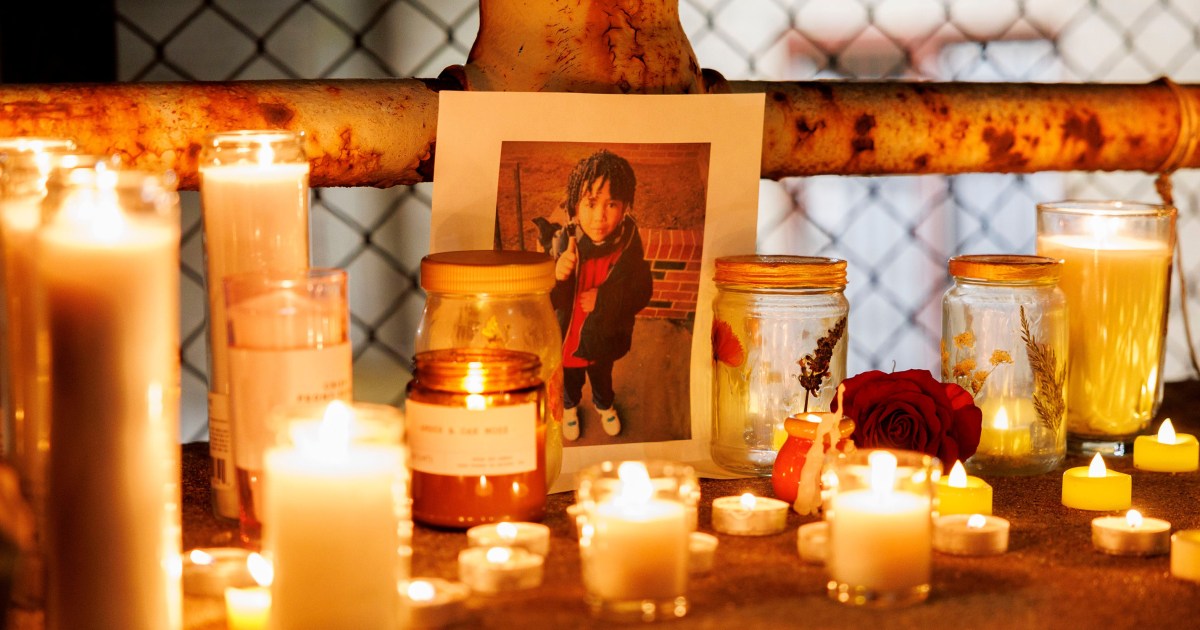By Erika Edwards -
NBC News
Viruses that normally spread in winter are taking children to the hospital in midsummer.
Illnesses they cause include severe colds;
croup
(or laryngotracheobronchitis) causing a severe cough and respiratory syncytial virus or RSV.
[
Follow our coverage on the coronavirus pandemic here
]
The increase in these diseases worries doctors, especially as the new school year approaches.
Not only do they expect a further spread of winter viruses;
they also anticipate an increase in COVID-19 cases
among younger students.
Virtually all elementary school-age children - that is, those under the age of 12 - are not vaccinated, and some school districts have said they will not require masks in classrooms, regardless of whether they have been inoculated or not.
Elementary students wear the mask at a school in Chula Vista, California, on July 21, 2021.AP
"We are all preparing for what lies ahead when children go back to school this season for respiratory illness," said Dr. Kristin Moffitt, an infectious disease expert at Boston Children's Hospital.
Circulating viruses now
spread mainly through droplets that are spread when a person coughs or sneezes
.
Some, like the virus that causes foot-and-mouth disease, are spread from person to person through unwashed hands.
Hospitals in various parts of the US brace for rising COVID-19 infections
July 20, 202101: 42
RSV can be particularly dangerous in young children and infants
, as it can lead to pneumonia and bronchiolitis, an inflammation of the small airways in the lung.
"Normally, there is no RSV in the summer," said Dr. David Kimberlin, co-director of the division of pediatric infectious diseases at the University of Alabama at Birmingham.
The increase in these types of infections in June and July "exceeded our worst winters in terms of hospitalization for RSV," he added.
Dr. Buddy Creech, a pediatric infectious disease expert at Vanderbilt University Medical Center in Nashville, Tennessee,
observed a similar increase in non-seasonal viruses.
[The delta variant already accounts for 83% of new COVID-19 cases in the US]
"Our children's hospitals are very busy, mainly due to the winter viruses that have returned in force," he said.
In June, the Centers for Disease Control and Prevention (CDC) alerted doctors to the spread of RSV, especially in southern states.
Kimberlin said her pediatric intensive care unit almost ran out of beds due to the influx of RSV cases.
They had to activate other medical teams in order to stay afloat.
"It was, everyone got to work
,
" he
emphasized.
While RSV cases are starting to decline in the south, there are some signs that the virus is moving north.
In Texas and Florida, COVID-19 cases increase exponentially and most hospitalized patients were not vaccinated
July 20, 202102: 42
Dr. Sean O'Leary, an infectious disease expert at Colorado Children's Hospital, said he is seeing a "huge increase" in RSV cases.
Other viruses normally seen in the winter have also brought children to the hospital, including enteroviruses and parainfluenza 3, which causes croup.
"We are seeing cases of bronchiolitis, which is what RSV usually causes, but other viruses are causing it,
" O'Leary explained.
On the other hand, COVID-19 continues to be a threat to children.
According to the latest report from the American Academy of Pediatrics, around 130 new coronavirus-related child hospitalizations have been reported since July 8.
[Are people vaccinated against COVID-19 delta variant protected? An expert explains]
It is not entirely clear why typical winter viruses appear during the summer
.
O'Leary, who is also vice chairman of the American Academy of Pediatrics Committee on Infectious Diseases, suggested that one reason is that the distancing and masking guidelines "are slowly but surely loosening."
"There is much more contact between people than before," he said.
Kimberlin agreed.
"These viruses thrive through social interactions," he
explained.
The upcoming winter season could be affected by what is happening now
, experts say.
"The pandemic has turned everything upside down," said Dr. Bernhard Wiedermann, infectious disease specialist at Children's National Hospital in Washington DC "It will be difficult to predict what will happen to influenza, RSV and other illnesses in the fall and winter seasons." added.
A high school student receives her first COVID-19 injection in Georgia on May 12, 2021.
CDC Director Dr. Rochelle Walensky warned the Senate Health Committee Tuesday about the likely increase in illness among school-age children.
"These children have not been to school. They have not been together. I am concerned about upper respiratory infections," Walensky said, adding that
coronavirus testing will be critical in determining whether symptoms are due to COVID-19 or another virus
.
[Vaccines protect against the dangerous delta variant of COVID-19. But it takes both doses]
Doctors expect an increase in coronavirus cases in young children, for whom there is no vaccine yet.
"I think it would be unwise to think that as the pandemic progresses, children will not continue to be affected, because they are not yet vaccinated," Creech argued.
"We have to think about the most vulnerable and at this moment those are our children," he
added.














/cloudfront-eu-central-1.images.arcpublishing.com/prisa/EXJQILQR5QI7OMVRTERD7AEZAU.jpg)
